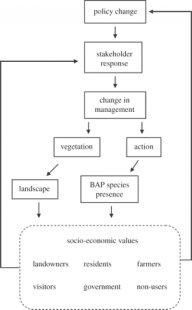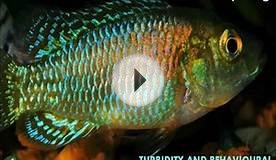Human Behavioural Ecology

Abstract
Research on the interactions between human behaviour and ecological systems tends to focus on the direct effects of human activities on ecosystems, such as biodiversity loss. There is also increasing research effort directed towards ecosystem services. However, interventions to control people's use of the environment alter the incentives that natural resource users face, and therefore their decisions about resource use. The indirect effects of conservation interventions on biodiversity, modulated through human decision-making, are poorly studied but are likely to be significant and potentially counterintuitive. This is particularly so where people are dependent on multiple natural resources for their livelihoods, when both poverty and biodiversity loss are acute. An inter-disciplinary approach is required to quantify these interactions, with an understanding of human decision-making at its core; otherwise, predictions about the impacts of conservation policies may be highly misleading.
1. Introduction
The theme of this issue of the journal is predictive systems ecology. However, in order to be truly predictive in any human-altered environment, the system under consideration must include human users, and this requires the integration of ecology with social science. In this paper, I focus on the potential for closer integration of ecology and social science in order to improve the predictive power of system dynamics models. I draw my examples primarily from conservation science, with an emphasis on guiding the implementation of policies aimed at improving the sustainability of natural resource use.

